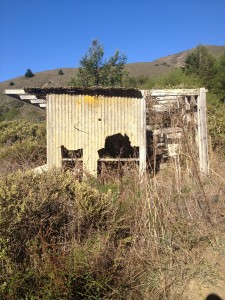“How is the film industry going to learn to support the artists who are willing to take risks, are committed to their own audience and advancing the language of cinema?
Category: Truly Free Film
We are on the verge of a new film culture and infrastructure.
“Filmmakers, Hollywood, The Industry, rarely know whom their audience is. We do it so ass-backwards: we make a movie and we think it is so wonderful that people all over the world will come to see it. Wouldn’t it be a hell of a lot easier if
Special Thanks to Ondi Timoner and the A Total Disruption team!
There is, of course, a lot more to it than that, but

 What are our expectations when we sit down to watch? How strong are they? Are these expectations actually demands? Will we be punished if we don’t fulfill them?
What are our expectations when we sit down to watch? How strong are they? Are these expectations actually demands? Will we be punished if we don’t fulfill them?
I think there are universal hopes all audiences have for cinema each and every time they sit down to watch. When we fail to provide them, people start to lose faith in our product. We need to keep this promises front and center when we create new movies. Many do, some don’t. Which side do you want to be on?
Things could be better for the film biz. We can lift it up. We have the power.
How do we decide what is the best approach? What makes sense in terms of how we should work today?
For me, I start with the premise that everyone has less available time. We work more and more. We have more responsibilities and obligations. The less time we have, the more valuable that time becomes. We generally don’t commit our available time frivolously.
From there, I accept that there is increased competition for our time. Although we have less leisure time, we have more options on how to spend that time then ever before.
What does this access to everything mean for us? Generally speaking, the quality of our experiences improve with the increased input we get; that is, the more we consume, the better we are equipped to consider our next move. As we find “better” work to immerse ourselves in, the better work we do. When we have better advisors, our output benefits. As long as we don’t surround ourselves with the wrong people and things, things do get better.
How does our immersion in better things influence us? Overall we expect a better “ROIE”: Return On the Investment of our Engagement. We value time. We know there is plenty of good things to find. Our curiosity grows.
Luckily for us, those of us in the film business have a truly distinct product whose value has generally gone untapped. Business has taught us to look at film primarily for the revenue it can generate of course. The audience has been taught to value film based on how much entertainment it delivers. Yet, as any cinema lover knows, movies are much much more than that.
Movies create a shared emotional response amongst strangers. Good cinema compels us to discuss it afterwards. A movie can create empathy amongst folks who have only previously felt differences. How incredibly powerful is that? Can we unlock that attribute on a regular basis? Damn straight we can! The transformative power of cinema is its true utility; well, that and its consequent ability to build community around it.
If we highlight these aspects of film, we give the audience a better ROIE. Give more.
If we give the audience more, they in turn give us more. Isn’t that great?
Time to stop thinking of film as just an entertainment. Movies change people and they can change the world. Let’s celebrate this utility inherent in our art and business.
In June 2014, director Alex Lightman produced his first feature film, Tear Me Apart. Here he talks about the major lessons him and his team learnt along the way.
The London Screenwriters’ Festival 2011 was where my career really began. Made to talk to the person next to me by festival creative director Chris Jones, I shook hands with screenwriter Tom Kerevan. A fateful encounter.
We started working together and soon after met cinematographer Ernesto Herrmann on a short film shoot. The three of us have been working together ever since.
In May 2013 we made the somewhat snap decision to take the plunge and produce a feature film ourselves.


